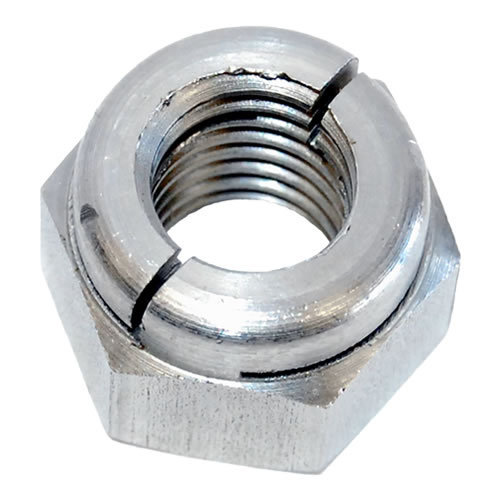Lock Nuts
A lock nut is also called a stiff nut and these nuts help to resist loosening under vibration and torque. After inserting one nut onto the end of the bolt, they would place a second nut on the bolt. There are many types of lock nut but they can be broadly divided into those which use friction to prevent loosening. While the use of two nuts is effective at preventing vibration-related loosening, it’s not cost-effective for manufacturing companies that perform large-volume production operations, and lock nuts are also described on the basis of some form of positive locking device.
There are several types of lock nuts, the most common of which include metal lock nuts and nylon insert lock nuts. Traditional nuts simply consist of a basic threaded hole, so constant exposure to vibrations can knock them loose from the bolt-on which they are placed. Metal locknuts feature a crowned top that can be crimped to secure the nut in place. Locknuts protect against loosening, however, by featuring a design that increases the nut’s resistance to vibrations. In comparison, nylon lock nuts feature a layer of nylon material covering the interior threading. These types of nuts are commonly called “prevailing torque” lock nuts because they require the use of a wrench to run the nut down the thread of the bolt. When a nylon lock nut is placed on a bolt, the nylon fibers expand to grip the bolt.


